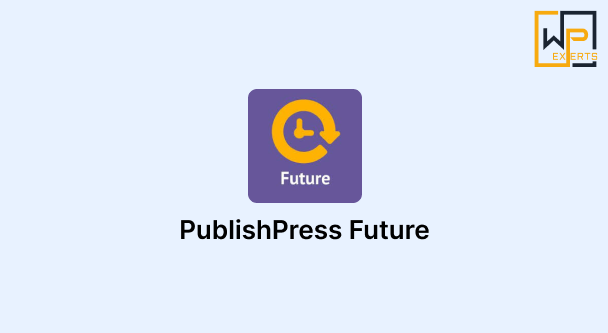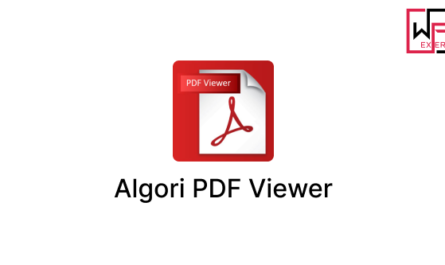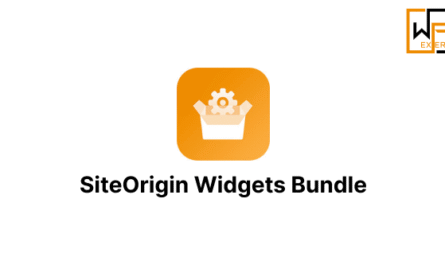Schedule Post Changes With PublishPress Future: Unpublish, Delete, Change Status, Trash, Change Categories
In the fast-paced world of content management, scheduling when a post should go live is a basic necessity. But what if you need a post to change or expire automatically at a specific time? That’s where PublishPress Future steps in. Formerly known as Post Expirator, PublishPress Future is a powerful WordPress plugin that lets you schedule automatic changes to your posts, helping you maintain an organized, timely, and dynamic website.
Whether you’re managing a content-heavy blog, an event website, a coupon listing, or a news portal, this plugin can automate the post lifecycle beyond just scheduling the publish date. Let’s explore how PublishPress Future works and how it empowers WordPress site owners with features like Unpublish, Delete, Change Status, Trash, and Change Categories.
[modal_image thumbnail=”/wp-content/uploads/2025/06/PublishPress-Future-inner.png” large=”/wp-content/uploads/2025/06/PublishPress-Future-inner-slider.png”]
What is PublishPress Future?
PublishPress Future is a WordPress plugin designed to manage content automation by scheduling specific actions for posts, pages, or custom post types at a predetermined time. It adds a robust layer of editorial control, ensuring content stays relevant, up-to-date, and aligned with your site’s objectives.
The plugin integrates seamlessly into the post editor, adding a meta box where you can choose the future action to be taken and the exact time it should happen. It’s incredibly useful for campaigns, seasonal content, time-sensitive announcements, and promotions.
Key Features of PublishPress Future
Let’s break down the main scheduling actions PublishPress Future allows:
1. Unpublish Content Automatically
One of the most frequently used features is the ability to unpublish a post at a future time. This is particularly helpful for:
- Time-bound announcements (e.g., event registrations)
- Temporary campaigns (e.g., sales or discounts)
- Posts that are no longer relevant after a certain date
When scheduled to unpublish, the post will switch from Published to Draft or Private (you can choose which), removing it from public view while keeping it accessible for editing.
2. Delete Posts on Schedule
Another powerful feature is the option to delete posts permanently after a set time. This is useful when you:
- Want to remove expired content completely
- Are managing a temporary content feed or rotating listing
- Need to conserve database space by clearing old posts
This action is irreversible, so it should be used carefully. However, for content that is strictly disposable (like expiring deals), it can be a great way to automate cleanup.
3. Change Post Status
Beyond unpublishing, you can use the plugin to change the post status at a scheduled time. You can set a published post to become:
- Draft
- Private
- Pending Review
This is helpful in editorial workflows. For instance, if a post needs to be reviewed periodically, you can schedule it to go back to “Pending Review” automatically after a few months.
4. Move Posts to the Trash
If you’re not quite ready to permanently delete a post, the Move to Trash action is a more cautious alternative. Posts sent to the trash are no longer publicly visible, but they remain in your admin dashboard for 30 days (by default), giving you time to restore or delete them later.
This is a preferred method when you want to clean up your site without risking immediate data loss.
5. Change Categories
One of the more unique and versatile features of PublishPress Future is the ability to change a post’s category on a scheduled basis. You can either:
- Add a new category (in addition to the current ones)
- Replace all categories with new ones
This can be used creatively to:
- Highlight posts in a “Featured” category temporarily
- Reorganize archived content into a different section
- Shift seasonal or campaign-related posts automatically
For example, if you’re running a Black Friday promotion, you can categorize posts under “Black Friday” and then automatically remove that category afterward.
How It Works: Interface and Scheduling Options
When editing a post or page in WordPress, PublishPress Future adds a meta box typically labeled “Post Expiration” (or “Future Action” depending on the version). From here, you can:
- Enable scheduling for the post
- Select the action (unpublish, delete, trash, change category, etc.)
- Choose the date and time the action should occur
The interface is user-friendly, supporting both the Classic Editor and the Gutenberg Block Editor. You can also see a summary of all scheduled future actions from the plugin’s settings panel.
Custom Post Type Support
PublishPress Future isn’t limited to just posts and pages—it works with custom post types too. So, whether you have custom event listings, portfolios, products, or testimonials, you can schedule future actions for any of them. This makes it ideal for advanced WordPress setups and content-heavy projects.
Email Notifications and Logging
The plugin also supports:
- Email notifications when a scheduled action is executed
- Logging of all actions taken, so you can track post changes historically
These features are helpful for teams or site administrators who want to monitor automated tasks closely.
Use Cases in Real Life
To better understand its usefulness, here are some real-world use cases:
- Event Websites: Automatically remove past events from the front-end after they occur.
- Job Boards: Expire job listings after 30 days to keep listings fresh.
- Coupons and Deals: Remove or delete offers after the expiration date.
- Seasonal Campaigns: Switch categories of posts related to seasonal promotions.
- Content Review: Revert old articles back to draft or “Pending Review” for updating.
Compatibility and Performance
PublishPress Future is actively maintained and compatible with the latest WordPress versions. It integrates well with most themes and plugins. Its scheduled tasks are managed using WordPress’s built-in WP-Cron system, ensuring that scheduled changes run smoothly, assuming regular site traffic.
However, for mission-critical sites or high-traffic platforms, it’s recommended to configure real cron jobs on the server for more reliable task execution.
Free vs. Pro Version
The free version available on WordPress.org provides most of the essential features like:
- Unpublish
- Trash
- Delete
- Change categories
- Change post status
The Pro version adds extra capabilities like:
- Advanced category management (e.g., multiple taxonomy changes)
- Custom status changes
- Integration with PublishPress plugins (like capabilities or checklists)
- Priority support
For many users, the free version will be more than enough, but for enterprise or editorial teams, the Pro version adds value.
Conclusion
PublishPress Future is a powerful plugin that goes beyond basic content scheduling in WordPress. It gives administrators and content creators the ability to automate content management through smart, time-based actions like unpublishing, deleting, changing status, and modifying categories.
Whether you’re running a blog, business website, or a content-heavy platform, this plugin can help keep your site clean, relevant, and professionally managed without requiring constant manual intervention.
If your WordPress workflow includes time-sensitive content, give PublishPress Future a try—it might just become one of your go-to editorial tools.




